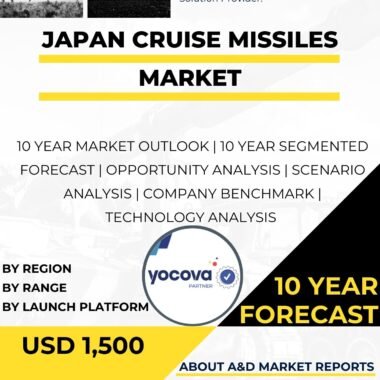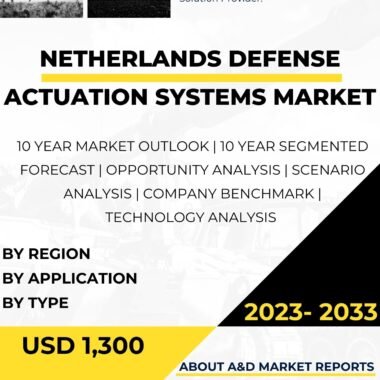Description
Japan Defense Actuation Systems Market has experienced notable growth and strategic importance in recent years. This growth reflects the nation’s focus on enhancing defense capabilities and addressing security challenges in the Indo-Pacific region. Actuation systems provide critical motion and control for defense platforms, enabling precise maneuvering of aircraft, positioning of weapons systems, and stabilization of naval vessels.
Japan faces evolving global security threats, regional tensions, and the need to maintain a technologically advanced defense force. In response, the country has invested heavily in advanced actuation technologies while fostering domestic innovation and technological expertise.
Applications in Aerospace
One key application of defense actuation systems in Japan is in the aerospace sector. The Japan Air Self-Defense Force (JASDF) has integrated advanced actuators into its aircraft to enhance maneuverability, control, and agility. Actuators are essential components of flight control systems, allowing pilots to precisely move ailerons, elevators, and rudders. This precise control is crucial for optimal performance in both combat and training missions.
Advanced actuation systems, including fly-by-wire technologies, replace traditional mechanical linkages with electronic controls. This shift reduces aircraft weight, improves safety and reliability, and simplifies maintenance. The adoption of such systems allows the JASDF to operate with greater flexibility, responsiveness, and operational efficiency.
Domestic Development
Japan emphasizes indigenous defense capabilities. Domestic companies actively research, develop, and produce actuation solutions tailored to the nation’s requirements. Collaboration between the government and domestic defense firms fosters innovation and supports growth in the local defense actuation systems market.
Applications in Land and Naval Domains
Actuation systems also play a critical role in Japan’s land and naval forces. The Japan Ground Self-Defense Force (JGSDF) uses actuators in vehicles for steering, suspension, and turret rotation. The Japan Maritime Self-Defense Force (JMSDF) employs actuators to stabilize ship movements and position weapon systems accurately. These systems enhance operational performance and mission effectiveness across all domains.
International Cooperation
Japan’s participation in multinational exercises and joint operations drives the acquisition of specialized actuation technologies. Advanced systems improve the safety and performance of these operations while enabling better control of defense platforms.
The market also benefits from Japan’s alliance with the United States. Access to U.S. actuation technologies and expertise strengthens Japan’s defense capabilities and supports regional security and stability.
Market Challenges
The defense actuation systems market faces several challenges. Electronic warfare and cyber-attacks pose growing threats as defense platforms become increasingly digitized. Japan must develop robust cybersecurity measures to protect critical actuation systems.
Reliability and durability are also key concerns. Actuators experience high stress in demanding military operations. Continuous improvement is needed to enhance longevity and reduce maintenance requirements.
Cost considerations influence procurement decisions. Developing and acquiring advanced actuation systems can be expensive, requiring careful budget allocation. Japan must balance investment in cutting-edge technologies with other defense priorities.
Conclusion
The defense actuation systems market in Japan has grown in strategic importance. Actuation systems provide essential motion and control for aircraft, vehicles, and naval vessels. Collaboration between the government, domestic industry, and international partners fosters innovation and strengthens the domestic market.
Addressing cybersecurity, reliability, cost, and technological challenges is critical. By leveraging advanced actuation systems, Japan can enhance operational precision, platform maneuverability, and overall defense effectiveness. With its focus on modernization, Japan remains committed to integrating cutting-edge actuation technologies to strengthen its defense capabilities and contribute to regional and global security.




